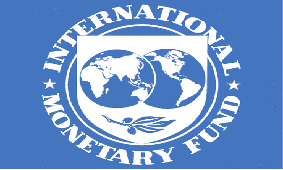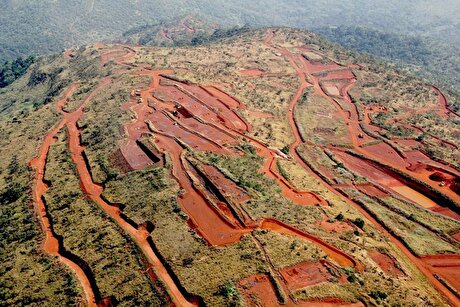
IMF grants emergency funds to Nigeria

The IMF said that the pandemic, coupled with the recent sharp drop in oil prices, "has magnified [Nigeria's] existing vulnerabilities", and has led to "a historic decline in growth and large financing needs".
Nigeria is the second African Opec member state to get assistance from the IMF's Rapid Financing Instrument, which provides swift and low-access fiscal aid to countries facing an urgent balance of payments need. Gabon received around $150mn on 9 April.
With crude as its dominant source of export and government revenues, Nigeria faces severe challenges in the lower price environment and from its commitments under the latest Opec+ production restraint deal. The IMF highlighted lower prices and production as two of the key factors that could undermine Nigeria's growth in its most recent country surveillance report, and it said more recently that any further price declines would strain the country's financing.
Nigeria's gross domestic product (GDP) growth was 2.55pc in the fourth quarter of last year, but the country's central bank has said this will probably slow because of tepid oil demand. The government has revised down its budgeted oil price to $30/bl, but this is still some way above current levels.
Indeed, state-owned NNPC's official selling prices (OSPs) for its crude in May are at decades-lows. All 33 grades are at discounts to North Sea Dated, some of the lighter ones by upwards of $5/bl. At current Dated levels, this means some Nigerian grades will sell for less than $10/bl next month. The price cuts are borne of necessity — Nigeria desperately needs to place its crude, and lacks onshore storage facilities. Tankers laden with Nigerian grades are already idling off its shores, waiting for a home.
Abuja's options are limited by its commitment to cap output to 1.41mn b/d in May and June, as part of the Opec+ deal. The country has a long history of poor compliance with Opec-agreed production ceilings, and the country's liquids export loading programme for May shows in excess of 2mn b/d.
By Ben Winkley


Gold price edges up as market awaits Fed minutes, Powell speech

Glencore trader who led ill-fated battery recycling push to exit

Emirates Global Aluminium unit to exit Guinea after mine seized

UBS lifts 2026 gold forecasts on US macro risks

Iron ore price dips on China blast furnace cuts, US trade restrictions

Roshel, Swebor partner to produce ballistic-grade steel in Canada

US hikes steel, aluminum tariffs on imported wind turbines, cranes, railcars

EverMetal launches US-based critical metals recycling platform

Afghanistan says China seeks its participation in Belt and Road Initiative

First Quantum drops plan to sell stakes in Zambia copper mines

Ivanhoe advances Kamoa dewatering plan, plans forecasts

Texas factory gives Chinese copper firm an edge in tariff war

Pan American locks in $2.1B takeover of MAG Silver

Iron ore prices hit one-week high after fatal incident halts Rio Tinto’s Simandou project

US adds copper, potash, silicon in critical minerals list shake-up

Barrick’s Reko Diq in line for $410M ADB backing

Gold price gains 1% as Powell gives dovish signal

Electra converts debt, launches $30M raise to jumpstart stalled cobalt refinery

Gold boom drives rising costs for Aussie producers

First Quantum drops plan to sell stakes in Zambia copper mines

Ivanhoe advances Kamoa dewatering plan, plans forecasts

Texas factory gives Chinese copper firm an edge in tariff war

Pan American locks in $2.1B takeover of MAG Silver

Iron ore prices hit one-week high after fatal incident halts Rio Tinto’s Simandou project

US adds copper, potash, silicon in critical minerals list shake-up

Barrick’s Reko Diq in line for $410M ADB backing

Gold price gains 1% as Powell gives dovish signal

Electra converts debt, launches $30M raise to jumpstart stalled cobalt refinery


















